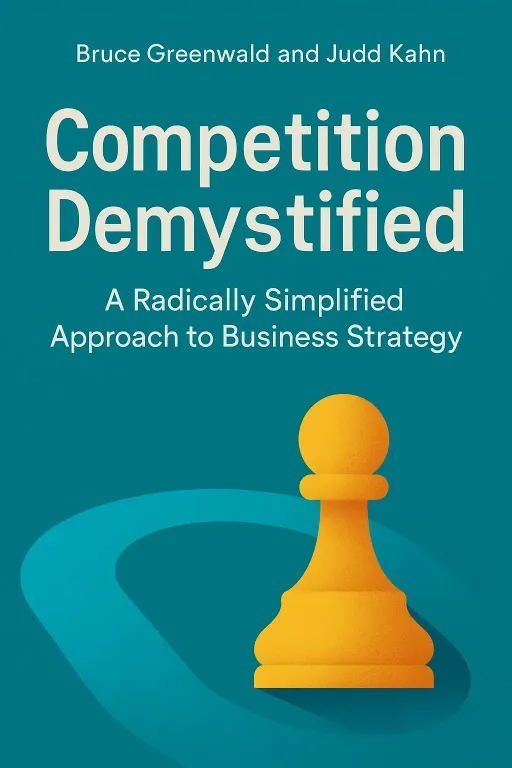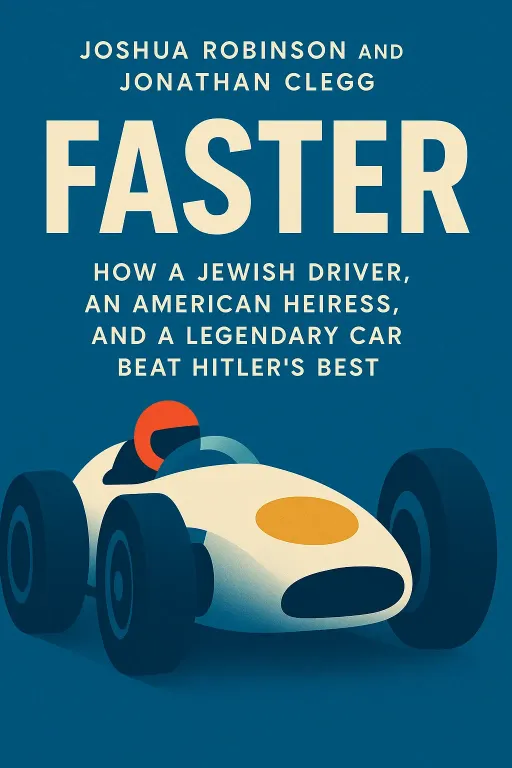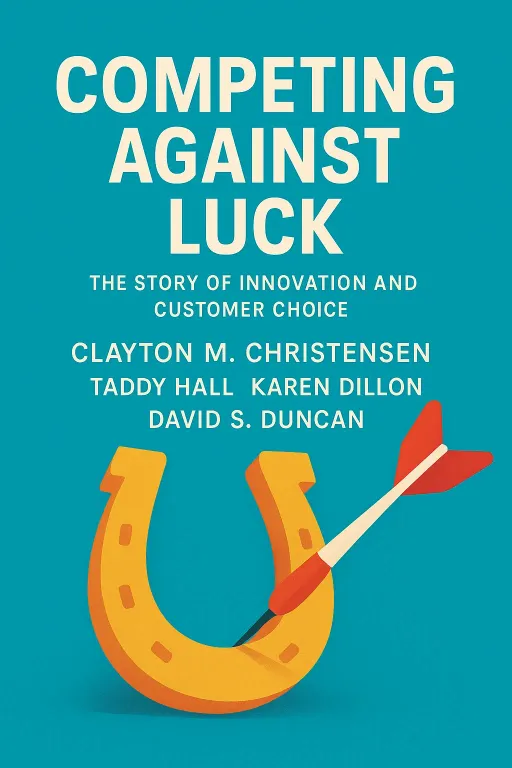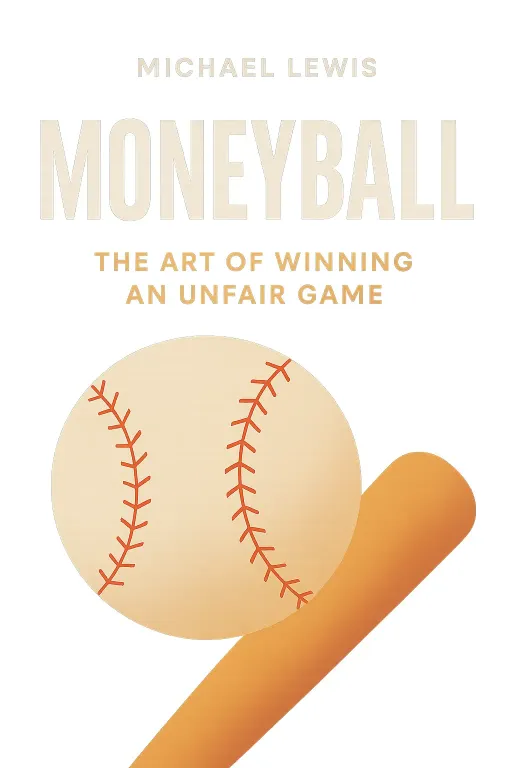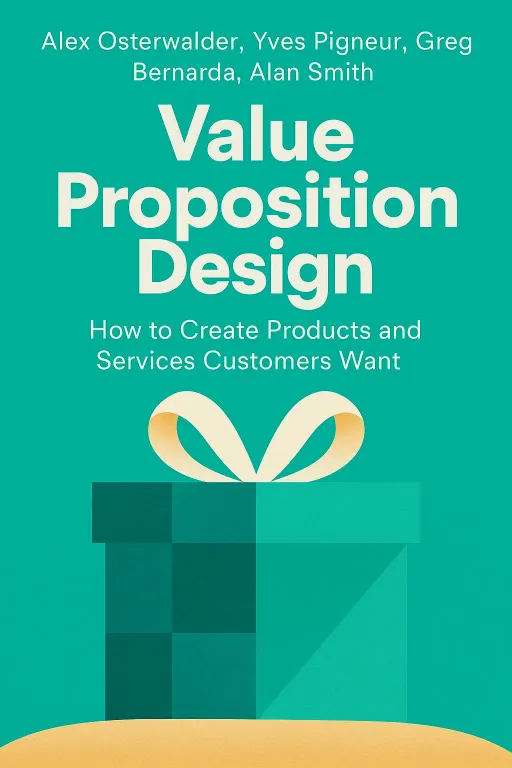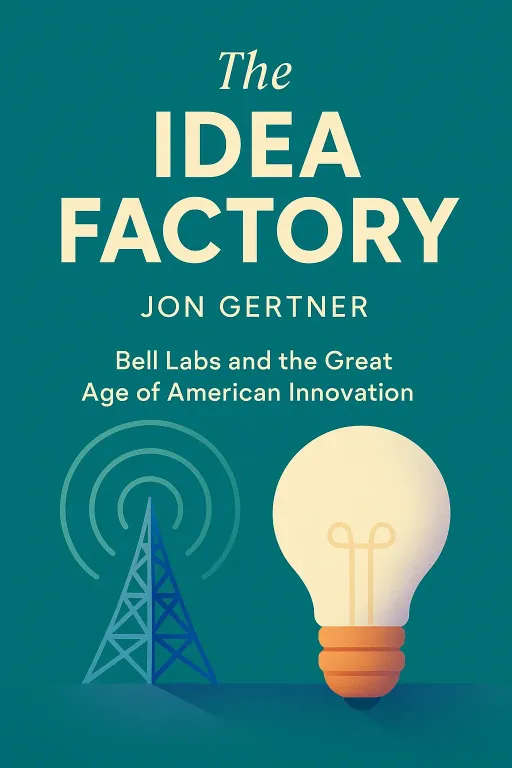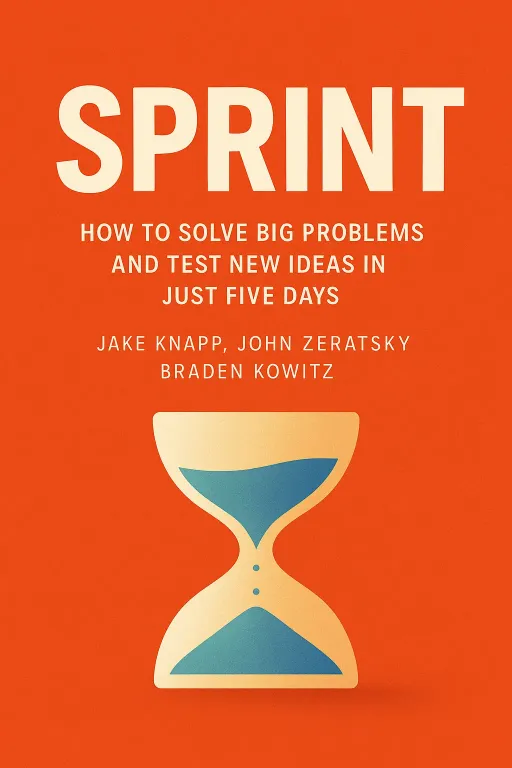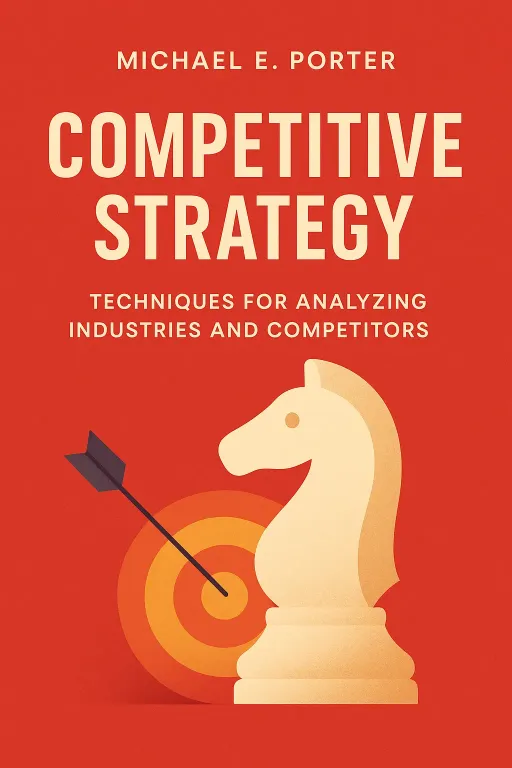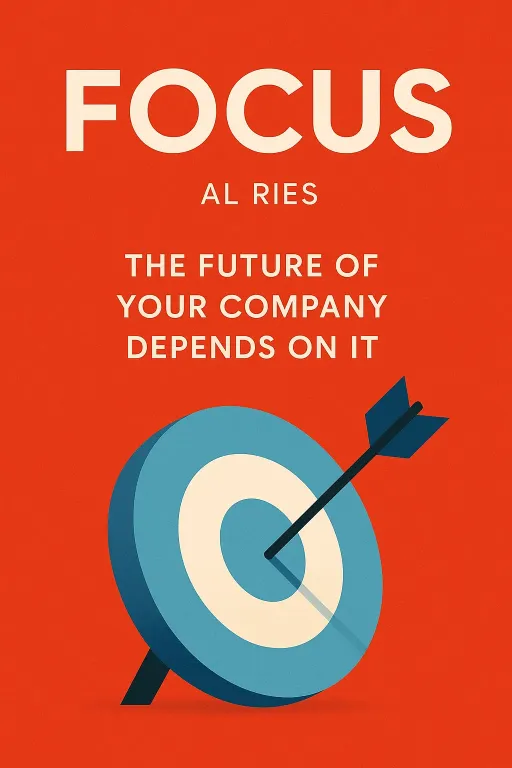
The Sun vs. The Laser
12 minThe Future of Your Company Depends on It
Golden Hook & Introduction
SECTION
Joe: Lewis, what’s the one piece of financial advice everyone’s grandma gives them? Lewis: Oh, easy. "Don't put all your eggs in one basket." Diversify. It's gospel. Joe: Exactly. And today, we’re going to explore a book that argues that for companies, that is precisely the road to ruin. Lewis: The road to ruin? That’s a bold claim. What book are we talking about? Joe: We're diving into Focus: The Future of Your Company Depends on It by Al Ries. And what's fascinating is that Ries, a legendary marketing strategist who pioneered the whole concept of "positioning," wrote this in the mid-90s, right when globalization was making every company feel like they had to expand and diversify to survive. He was swimming completely against the current. Lewis: Right, the era of the mega-conglomerate. So he was the guy yelling "Stop!" while everyone else was running towards the cliff. It's no wonder the great marketing mind Philip Kotler called the book "important, well-argued, but destined to be controversial." Ries was basically challenging the entire growth model of the late 20th century. Joe: He absolutely was. And he starts with this incredibly powerful, almost poetic, analogy to frame his entire argument: The Sun versus The Laser.
The Sun vs. The Laser: Why Unfocused Companies Fail
SECTION
Lewis: The Sun versus The Laser. Okay, I'm intrigued. That sounds less like a business book and more like a sci-fi epic. Lay it on me. Joe: It’s a beautiful and simple concept. The sun, as we know, is an unbelievably powerful source of energy. It radiates trillions of kilowatts in every direction. But its energy is diffuse. On a nice day, it warms your skin. It doesn't, however, drill through steel. Lewis: Right, I've noticed that. My summer tan has never once accidentally sliced through a car. Joe: Precisely. Now, think about a laser. A laser might only use a few watts of energy, a tiny, minuscule fraction of the sun's power. But because all of that energy is focused into a coherent, narrow beam, it can cut through diamonds. It can perform microscopic surgery. It has immense power because of its focus. Lewis: Okay, I see where this is going. So, companies are either suns or lasers. Joe: Exactly. Ries argues that most companies, in their quest for growth, try to become the sun. They add product lines, they enter new markets, they diversify. They want to be everything to everyone. And in doing so, they spread their energy, their resources, their talent, and their brand identity so thin that they lose their power. They just become... warm. Lewis: But hold on, isn't that the story of some of the most successful companies in history? I'm thinking of a giant like General Electric. For decades, GE was the model. They made lightbulbs, but they also made jet engines, plastics, TV shows, and they even got into financial services. They were the ultimate sun, and they were a titan. Jack Welch was a corporate hero for building that empire. Joe: That is the perfect example, and Ries tackles it head-on. He points out that this was an illusion of sustainable strength. For a time, GE's sheer size made it seem invincible. But what was happening under the hood? The company became a sprawling, unfocused collection of hundreds of unrelated businesses. It became impossible to manage effectively. Lewis: So what happened? Joe: The inevitable. The model started to break down. They were experiencing diminishing returns and losing efficiency. The company that was once a manufacturing powerhouse was now a financial services behemoth with a side of small appliances. Eventually, they had to perform painful corporate surgery. They started selling off hundreds of businesses—computers, small appliances, you name it. They had to cut their workforce almost in half. Lewis: Wow. So they were trying to find their laser again. Joe: They had to. They were a sun that was starting to cool off, losing its heat at the core. Ries’s point is that this isn't a unique story. It's a natural law. He calls it corporate entropy. The natural tendency of a company is to lose focus over time, to expand and diffuse its energy until it becomes weak. Lewis: That makes so much sense when you put it that way. It’s like a person who decides to learn piano, Japanese, and rock climbing all at the same time. They end up becoming mediocre at all of them instead of getting brilliant at one. Joe: That's the perfect analogy. And it’s not just about internal management. It’s about perception. Think about Microsoft in its heyday. Lou Gerstner, the guy who turned around IBM, famously said that Microsoft wasn't the best technical company. He said, and I'm paraphrasing, "They're one of the best marketing companies I've ever seen." Lewis: What did he mean by that? Joe: He meant that Microsoft, under Bill Gates, had a laser-like focus. They weren't always making the most technologically superior product, but they were focused on owning a single idea in the customer's mind: the operating system for the personal computer. They dominated that one, crucial space. Their competitors might have had better individual products, but they were scattered. They were suns, and Microsoft was the laser that cut right through them. Lewis: So the power isn't in having the best stuff, it's in having the most focused identity. Joe: That's the core of it. The book quotes David Packard, the co-founder of Hewlett-Packard, who said, "Marketing is too important to be left to the marketing department." The CEO has to be the Chief Marketing Officer. The entire company has to live and breathe that single, focused idea. When you do that, you become a laser. When you don't, you just become part of the background radiation. Lewis: Okay, so being a laser is the goal. But how does a company actually do that? It feels like markets are always merging. My phone is my camera, my computer, my wallet... that feels like convergence, not division. It feels like everything is becoming one big sun. Joe: Ah, and that is the great illusion that Ries spends the second half of the book dismantling. He argues that what you're seeing isn't convergence. It's division.
The Toys 'R' Us Formula: Winning by Division, Not Convergence
SECTION
Lewis: Division? That feels completely counter-intuitive. Explain that to me. Joe: Ries argues that "convergence" is a seductive management fad, just like "synergy" and "diversification" were in previous decades. He points to all the failed attempts at convergence products. Remember the TV/VCR combo? Or the washer/dryer in one machine? Or the fax/phone combo? They never really took off. Lewis: Oh man, the TV/VCR combo. A monument to mediocrity. It was a bad TV and an even worse VCR, all in one giant, beige box. Joe: Exactly! Because they were unfocused. The real, powerful force in business, Ries says, is division. Every category, over time, splits into two or more new categories. The computer didn't converge with the television; it divided into mainframes, minicomputers, workstations, personal computers, laptops, tablets, and smartphones. Each one of those became a new battlefield, with a new leader. Lewis: Huh. So it’s not one big pie, it’s a pie that’s constantly being sliced into new, smaller, more specific pies. Joe: Precisely. And the company that focuses on owning one of those new slices is the one that wins. The most powerful illustration of this is in retail. Think about the great American department store. In the mid-20th century, they were the kings. Sears, Macy's, Woodward & Lothrop. They were the sun. They sold you socks, stocks, washing machines, and candy. They sold everything. Lewis: And now? Many of them are gone or are shadows of their former selves. Joe: Why? Because the market divided. And new, laser-focused competitors emerged to own each slice. These are the "category killers." If you want tools, you don't go to Sears anymore. You go to Home Depot. If you want electronics, you go to Best Buy. If you want office supplies, you go to Staples. Each one is a laser. Lewis: And they all followed the same playbook, didn't they? Joe: They did. And Ries calls it the Toys 'R' Us formula. It’s a brilliant, five-step process for market domination. Charles Lazarus, the founder, started with a simple children's furniture store. But he noticed that the toys he sold as a side item were flying off the shelves. So he made a radical decision. Lewis: He threw out the furniture. Joe: He threw out the furniture! That was his moment of focus. And he built his empire on this formula. Step one: Narrow your focus. He decided to sell only toys. No clothes, no furniture, just toys. Lewis: Step two must be selection. Joe: Step two: Stock in depth. Because he only sold toys, he could offer a selection that no department store could ever dream of matching. An entire aisle of just Barbie dolls. Another aisle of just LEGOs. If you were a kid, or a parent buying for a kid, it was paradise. You knew they would have what you wanted. Lewis: Okay, so narrow focus, deep stock. What's next? Joe: Steps three and four: Buy cheap and sell cheap. Because Toys 'R' Us was buying such massive quantities of toys, they had immense leverage with manufacturers like Hasbro and Mattel. They could demand lower prices, and then pass those savings on to the customer. They could undercut the department stores on price every single time. Lewis: And the final step? Joe: Step five: Dominate the category. By doing the first four things, they became the place for toys. They owned the word "toys" in the mind of the consumer. When you thought "toys," you thought of them. That's the endgame of focus. Lewis: Wow, that's so true. You don't go to a department store for a deep selection of anything anymore. It’s like a buffet versus a world-class sushi restaurant. The buffet has a little bit of everything, and it's all kind of okay. But if you want amazing sushi, you go to the place that only does sushi. Joe: That's a perfect analogy. And we see it everywhere. Starbucks didn't invent coffee, but they focused on the experience of coffee and owned that category. Foot Locker sells just athletic shoes. Sunglass Hut sells just sunglasses. Cinnabon sells just those giant, delicious cinnamon rolls. Each one is a category killer. Each one is a laser. Lewis: It's fascinating because the book was written in the 90s, and some of the examples, like Blockbuster Video, have since become victims of this very same principle. Blockbuster was the laser that killed the mom-and-pop video store, but then Netflix came along with an even more focused laser—streaming—and killed Blockbuster. Joe: Exactly! The principle is timeless. The market is always dividing, and a new laser is always being forged. The moment a company thinks it has won and starts to diversify—to become a sun—it becomes vulnerable. Blockbuster started trying to sell candy and merchandise and lost focus on its core rental business just as the next big division was happening. Lewis: So the lesson is, you can never rest. You have to stay a laser. Joe: You have to stay a laser. And you have to have the courage to sacrifice. That's a word Ries uses a lot. You have to sacrifice the products you could sell, the markets you could enter, and the customers you could serve, in order to dominate the one area you choose to own.
Synthesis & Takeaways
SECTION
Lewis: So the big takeaway here isn't just a business strategy, it's almost a law of physics. Energy, whether it's light or corporate resources, is most powerful when it's concentrated. And the market, despite what it looks like on the surface, is always breaking apart into smaller niches for those focused players to dominate. Joe: Exactly. The book is a powerful argument against the corporate ego that says "we can do anything." The truth is, no company can do everything well. Success isn't about breadth; it's about depth. It’s about owning a word in the mind. Volvo owns "safety." FedEx owns "overnight." Google owns "search." They are lasers. Lewis: And it's a message that feels even more urgent today. In an age of infinite distraction, the companies and even the people who have a clear, sharp focus are the ones who cut through the noise. Joe: That's the ultimate point. And Ries's challenge, which is still so relevant, is for leaders to have the courage to sacrifice. To say 'no' to the tempting opportunities that lie outside that narrow beam of focus. It’s not about what you do; it’s about what you choose not to do. Lewis: It makes you wonder, what's the one thing your company—or even you, in your own career—could focus on to become a laser instead of just another sun? It's a powerful question to sit with. Joe: A very powerful question. It’s about finding that one thing and pouring all your energy into it, knowing that in focus, there is power. Lewis: A brilliant and clarifying idea. It cuts through so much of the business jargon out there. Joe: This is Aibrary, signing off.
